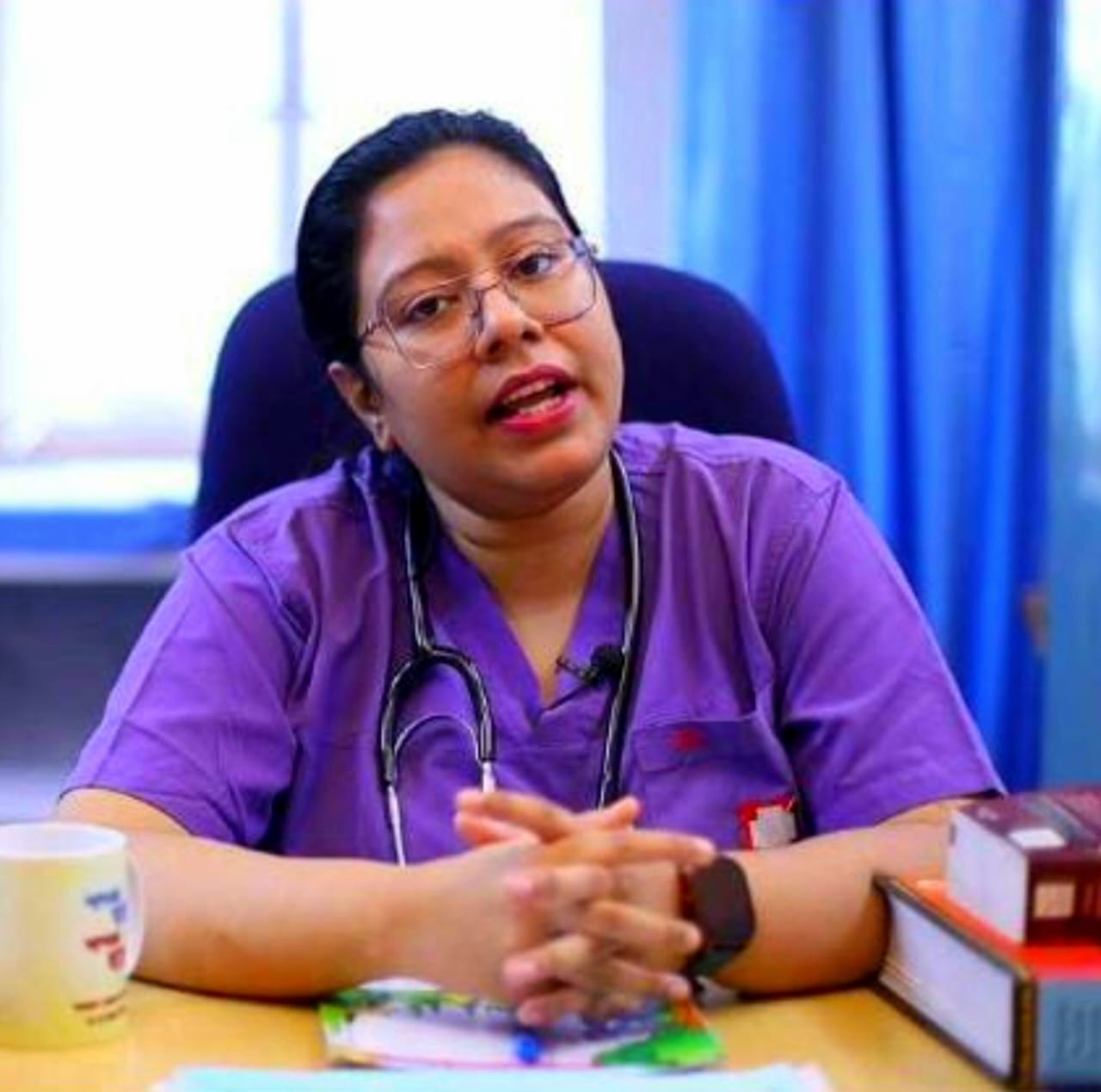Helping Children with Tourette's
Comprehensive guide to Tourette's in children—symptoms and diagnosis. Learn about CBT, medications, and tackling stigma effectively.

Written by Dr.Sonia Bhatt
Last updated on 3rd Jul, 2025
Tourette Syndrome (TS) is a neurological condition characterised by repetitive, involuntary movements and vocalisations known as tics. These tics, which can range from mild blinking or throat-clearing to more complex actions, typically first appear in childhood, most often between the ages of 5 and 7. While the exact cause remains unclear, a combination of genetic factors and differences in brain chemistry play a role in this condition.
Tourette Syndrome is more common than many realise. Symptoms often peak during early adolescence, but many people experience a noticeable reduction in tic severity as they enter adulthood. It’s also worth noting that TS frequently co-occurs with other neurodevelopmental or mental health conditions, such as ADHD, obsessive-compulsive disorder (OCD), or anxiety, which can complicate diagnosis and daily management.
Understanding Tourette Syndrome
Tourette Syndrome (TS) is defined by the presence of tics—sudden, repetitive movements or sounds that are involuntary and difficult to suppress. These tics are broadly categorised into motor tics and vocal tics, which vary widely in type, frequency, and intensity. Recognising these symptoms is key to understanding the condition and supporting those affected.
Motor Tics and Vocal Tics Explained
Motor tics involve physical movements. They can be:
Simple: Brief, isolated actions like blinking, grimacing, or shoulder-shrugging.
Complex: Coordinated sequences such as hopping, touching objects, or mimicking others’ gestures (echopraxia).
Vocal tics, meanwhile, involve sounds or words. These include:
Simple: Grunting, throat-clearing, or sniffing.
Complex: Repeating words or phrases (echolalia), shouting, or, in rare cases, involuntary swearing (coprolalia).
Tics often fluctuate in severity and may evolve. Many children experience a “premonitory urge”—a physical or mental sensation, like an itch or tension that precedes a tic. While temporarily suppressing tics is possible, doing so can lead to discomfort or a later surge in tic activity.
Common Triggers and Patterns
Tics are not random; they often follow patterns or respond to triggers. Common factors include:
Stress or excitement: Anxiety, excitement, or fatigue can amplify tics.
Environmental stimuli: Certain sounds, sights, or textures may provoke tics in some individuals.
Physical states: Illness or hunger might increase tic frequency.
Many children experience a “waxing and waning” pattern, where tics worsen for weeks or months before improving. Tics may also temporarily subside during focused activities, like reading or playing sports.
Differentiating Tourette from Other Disorders
Tourette Syndrome is often mistaken for other conditions, such as:
Obsessive-Compulsive Disorder (OCD): While OCD involves repetitive behaviours, these are typically driven by intrusive thoughts, not involuntary urges.
ADHD: Hyperactivity or impulsivity may overlap with TS, but ADHD lacks the hallmark motor or vocal tics.
Autism: Repetitive movements in autism (e.g., stimming) are often self-soothing, whereas tics are involuntary and disruptive.
A formal TS diagnosis requires the following:
- Presence of both motor and vocal tics (not necessarily simultaneously).
- Tics persisting for over a year, with onset before age 18.
- Symptoms not caused by medications, substance use, or other medical conditions.
Consulting a specialist, such as a paediatric neurologist or psychiatrist, is crucial to rule out mimics and ensure accurate diagnosis.
Diagnosis of Tourette Syndrome and Its Impact on Daily Life
Understanding how Tourette Syndrome (TS) is diagnosed and its profound effect on a child’s daily life is essential for fostering empathy and providing practical support. Here’s a closer look at the diagnostic journey, the professionals involved, and why timely intervention matters.
The Diagnostic Process
Diagnosing Tourette Syndrome is a clinical process, meaning there’s no single blood test or scan to confirm it. Instead, healthcare professionals rely on:
Detailed medical history: Tracking the onset, frequency, and type of tics.
Observation: Noting motor and vocal tics over time (they must persist for at least one year).
Exclusion of other conditions: Ruling out mimics like seizures, side effects of medication, or other movement disorders.
Why Early Diagnosis Matters
Early diagnosis is critical for several reasons:
Reducing stigma: Labelling tics as “naughty behaviour” can harm a child’s self-esteem. A diagnosis helps families, teachers, and peers respond with compassion.
Accessing support: Schools can implement adjustments, such as extra exam time or quiet spaces to manage tics.
Managing co-occurring conditions: A majority of children with TS have additional challenges like OCD or anxiety, which benefit from early intervention.
Delays in diagnosis can lead to academic struggles, social isolation, or mental health difficulties.
The Impact of Tourette Syndrome on Daily Life
Living with TS extends beyond tics. Children often face:
Educational challenges: Tics may disrupt concentration or writing. Stigma from peers can lead to avoidance of school.
Social hurdles: Fear of judgment might cause withdrawal from friendships or activities.
Emotional strain: Anxiety about tics being noticed or frustration at being misunderstood is common.
Family dynamics: Parents and siblings may need guidance to balance support with fostering independence.
Simple acts like reading aloud in class or attending a birthday party can become sources of stress. However, many children learn to navigate these challenges successfully with understanding and tailored strategies.
Supporting Children with Tourette Syndrome: Therapy, Medication, and Community
Tourette Syndrome (TS) can significantly impact a child’s daily life, but various therapeutic options, educational support, and community resources can help manage symptoms effectively. This section explores behavioural therapy, medication, and the importance of building a supportive network for children with TS.
Overview of Behavioural Therapy Options
Behavioural therapy is a cornerstone in managing Tourette Syndrome, focusing on reducing tic severity and improving coping strategies. Common approaches include:
Habit Reversal Training (HRT): This method teaches children to recognise the premonitory urges that precede tics and replace them with a competing response. For example, if a child feels the urge to blink excessively, they might learn to squeeze their hands instead.
Comprehensive Behavioural Intervention for Tics (CBIT): This structured programme combines HRT with education about TS, relaxation techniques, and strategies to manage tics in various settings.
These therapies are often delivered by trained psychologists or therapists specialising in TS, ensuring children receive tailored support.
Role of Cognitive Behavioural Therapy (CBT)
Cognitive Behavioural Therapy (CBT) is particularly beneficial for addressing the emotional and psychological challenges associated with TS. CBT focuses on:
Identifying negative thought patterns: Helping children recognise and challenge unhelpful beliefs about their tics or self-worth.
Developing coping strategies: Teaching relaxation techniques, mindfulness, and problem-solving skills to manage anxiety or frustration.
CBT can be especially effective for children who experience co-occurring conditions like anxiety or OCD, providing them with tools to navigate their feelings and improve their overall well-being.
Overview of Common Medications Used
In some cases, medication may be necessary to manage more severe tics or co-occurring conditions. Common medications include:
Antipsychotics: Such as haloperidol or aripiprazole, which can help reduce tic severity.
Alpha-agonists: Like clonidine, which may also assist in managing impulsivity and hyperactivity.
It’s important to note that medication is not a one-size-fits-all solution; what works for one child may not work for another.
Conclusion
Tourette Syndrome, with its complexities and challenges, is a journey that calls for compassion, adaptability, and collective effort. Children with Tourette Syndrome often exhibit extraordinary creativity, humour, and resilience—qualities that, when nurtured, can flourish into lifelong strengths. Children with TS can thrive with empathy, education, and proper support.
Consult Top Neurologist
Consult Top Neurologist

Dr. D Bhanu Prakash
General Practitioner
10 Years • MBBS, AFIH, Advanced certificate in critical care medicine, Fellowship in critical care medicine
Hyderabad
Apollo 24|7 Clinic, Hyderabad

Dr D M Karthik
General Practitioner
4 Years • MBBS, Fellowship in Diabetes Mellitus, Advance certificate in Diabetes Mellitus, Derma Nutrition Certification
Visakhapatnam
Apollo 24|7 Clinic - Andhra Pradesh, Visakhapatnam

Dr. M L Ezhilarasan
General Practitioner
6 Years • MBBS
Visakhapatnam
Apollo 24|7 Clinic - Andhra Pradesh, Visakhapatnam
Dr. Kavitha Killaparthy
Dermatologist
23 Years • MBBS,DIPLOMA(DERMATOLOGY,VENEREOLOGY,LEPROSY)
Hyderabad
JDS Skin & Hair Clinic, Hyderabad

Dr. Saheli Dasgupta
Paediatrician
10 Years • MBBS, MD (Paediatrics), Indian Diploma of Paediatric Critical Care Medicine
Kolkata
Sristi Polyclinic, Kolkata




